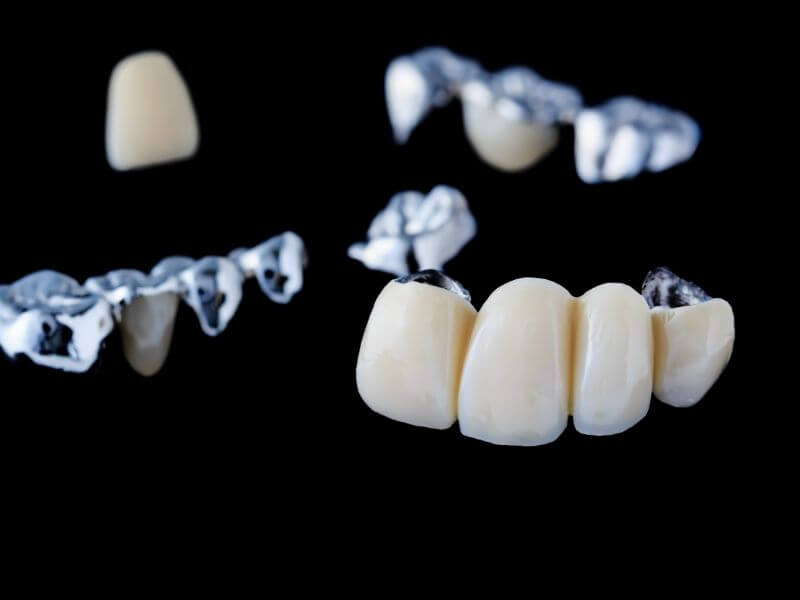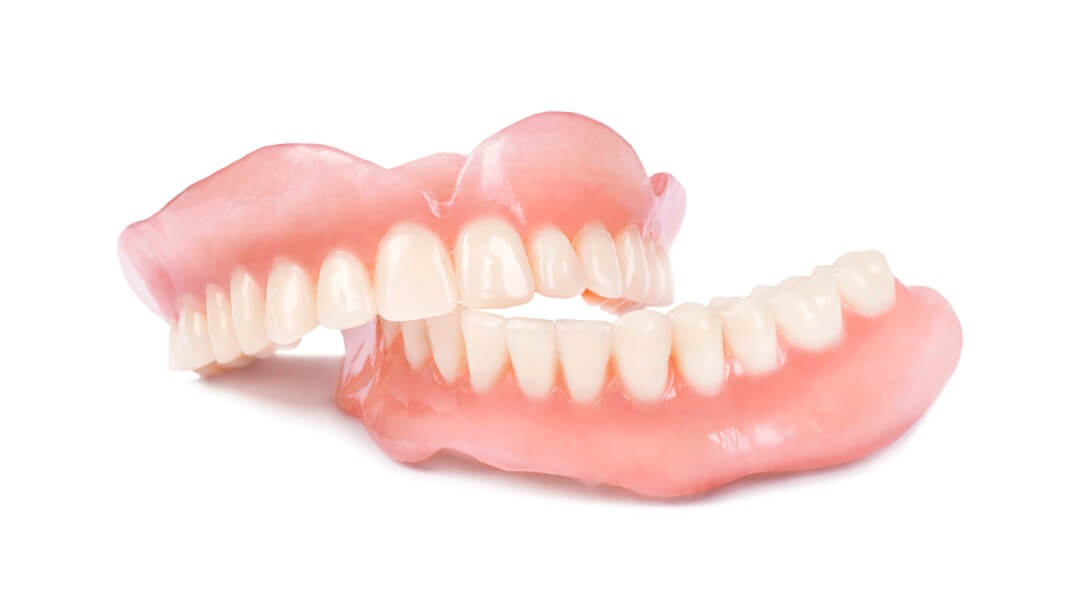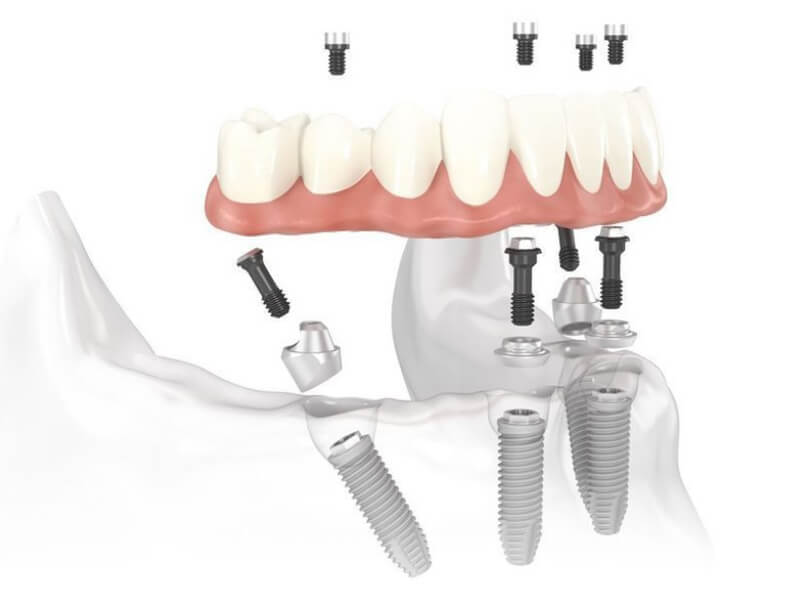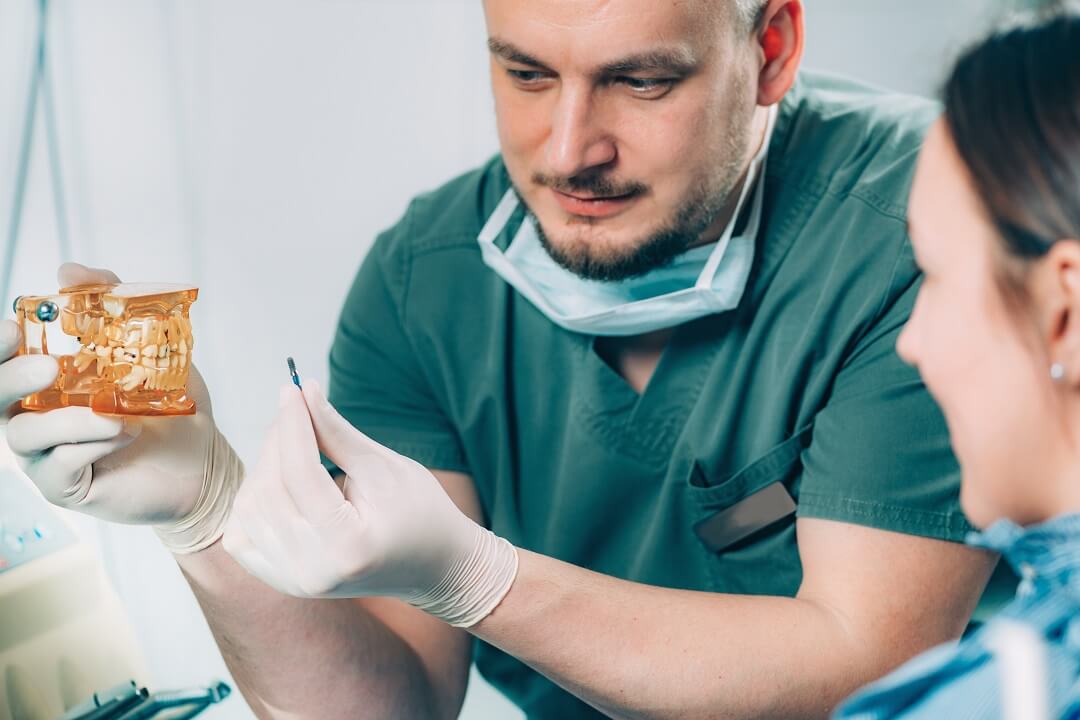Everyone wants a bright, full smile. But sometimes, we lose a tooth or two. One way to fill in these gaps is with dental implants. But are they right for everyone?
In this article, you’ll learn all about dental implants. We’ll talk about what they are, why people like them, and who can get them. So, if you’re considering fixing a gap in your smile, this is a good place to start.
Have you ever felt shy about showing your teeth when you smile or laugh? Maybe you feel worried about how others see you. We get it. Missing teeth can make some people feel less confident.
But there’s good news: There’s a way to help fix this. Keep reading to find out if dental implants might be the right choice for you and how they can bring back that big, happy smile. Let’s dive in!
Key Takeaways
- Dental implants act like fake tooth roots to hold new teeth.
- Your overall health, strong jawbone, and mouth hygiene determine if implants are right for you.
- Smoking, heart disease, or a weak jawbone can make getting implants more challenging.
- There’s no age limit for implants, but younger folks might need to wait until their jaws stop growing.
- If implants aren’t your thing, other options like bridges, dentures, or the All-on-4 treatment exist.
Understanding Dental Implants
Dental implants are a remarkable solution for people missing one or more teeth. They serve as artificial tooth roots, providing a strong foundation for fixed or removable replacement teeth that match your natural ones. Mayo Clinic’s comprehensive guide on dental implant surgery provides an excellent, detailed overview.
The procedure starts with a skilled dentist inserting a titanium post into the jawbone beneath the gum line. Titanium is used because it can fuse with bone tissue – a process known as osseointegration – allowing the implant to become part of your body and provide stable support just like real tooth roots do.
Once healed and secure, these posts allow dentists to mount replacement teeth onto them. What’s surprising is how this relatively small piece of metal can change lives dramatically – restoring smiles, confidence, and often overlooked functionality in eating.
The Science Behind It:
-
- Titanium fuses well with human bone tissue without causing harmful reactions.
- After recovery, your new ‘teeth’ will feel remarkably similar to natural ones.
- No special care is needed – regular brushing and flossing will keep them clean and shiny.
According to AAID, over 3 million Americans have dental implants, and this number is growing by 500,000 a year. This shows the trust people put in dental implants to restore their smiles.
The Ideal Candidate for Dental Implants
When it comes to dental implants, not everyone’s a good fit. But don’t fret. Let’s delve into what makes someone an ideal candidate.
1. General Health Considerations
A person in good overall health is usually a prime candidate for dental implant surgery. This means you’re free from chronic illnesses that might hinder healing post-surgery. Conditions like diabetes or heart disease could potentially complicate the procedure.
2. Oral Health Status
Your mouth needs to be ready too. Good oral hygiene habits – think regular brushing and flossing – are essential. Before getting a dental implant, you should ensure your jaw has enough bone density to support it; if not, there are treatments that can help.
3. Bone Quality and Quantity
When considering dental implants, one of the critical factors to consider is the quality and quantity of your jawbone. This is because dental implants require a solid foundation for successful placement.
The Importance of Bone Quality
Just like building a house on strong soil, placing dental implants requires healthy bone tissue. The implant post needs to integrate with your bone in a process known as osseointegration. If the bone lacks density or strength, it might not support an implant properly, leading to failure.
The Role of Bone Quantity
In addition to having good quality bone, you also need sufficient quantity for successful dental implant surgery. If there isn’t enough height or width in your jawbone due to resorption (the loss of bone over time), then there may be inadequate space for placing an implant securely.
Evaluating Your Jawbone’s Health
Your dentist will evaluate both aspects before proceeding with any dental implant treatment plan. This usually involves X-rays or CT scans that provide detailed images showing the health and structure of your jawbone. The results can help determine whether you’re a good dental implant candidate.
What If You Lack Sufficient Bone?
If it turns out that you lack either the quality or quantity of bone necessary for traditional dental implants, don’t worry! There are options available, such as sinus lifts, ridge augmentation procedures, and bone grafts, which can build up areas where more volume is needed. Moreover, mini dental implants may be a viable option as they require less bone for placement than traditional ones.
Remember, every patient’s case is unique, and the best way to know if you are a good candidate for dental implants is by consulting with your dentist. They can provide personalized advice based on your specific needs and circumstances.
4. Lifestyle Factors That Can Influence Success
Last but definitely not least, lifestyle factors matter as well. For instance, smoking doesn’t mix well with dental implants because it impairs healing and increases the risk of infection after surgery.
Remember though, these aren’t hard-and-fast rules – every patient is unique, and we always consider individual circumstances before making recommendations.
Conditions That May Affect Candidacy
The success of dental implant surgery is contingent upon one’s overall health. Certain medical conditions and lifestyle habits can impact the success of this procedure.
-
- Chronic Diseases: If you have chronic diseases like diabetes or heart disease, these could complicate your candidacy for dental implants. Studies show that poorly controlled blood sugar levels may impair healing after surgery, making it harder for the implant to fuse with your jawbone.
- Tobacco Use: Smoking is another factor that might affect your eligibility. The toxins from cigarettes interfere with healing and increase the risk of infection post-surgery. It’s like trying to plant seeds in toxic soil – they simply won’t grow well.
- Osteoporosis and Bone Health: Bone health is also critical because dental implants need sufficient bone structure to hold them firmly. If you have osteoporosis, it may make securing an implant more challenging.
This isn’t an exhaustive list, though. There are other conditions which might affect one’s candidacy as well. Always remember: communication between dentist and patient needs transparency – so be open about any medical history during consultation sessions.
Age Considerations for Dental Implants
One common question we often get is, “Is there an age limit for dental implants?” The good news is that there’s no strict upper age limit. In fact, many seniors have successfully received dental implants. However, for younger individuals, the situation is not as straightforward.
The key concern with younger patients—particularly those in their teens—is that their jaws are still growing. Placing a dental implant before the jaw fully develops can lead to alignment issues as they age.
Determining the Right Time for Implants in Young Patients
To ensure young patients get the best results from this procedure, dentists typically wait until growth stops before proceeding with implants. For girls, this usually happens around ages 14 to 16, while boys might need to wait till about 18 years old.
This isn’t set in stone, though. Each patient differs, and some may mature earlier or later than others. So always ask your dentist—they’re like seasoned sailors who know how to navigate these waters.
Alternatives to Dental Implants
Don’t fret if dental implants don’t suit your needs; there are other ways to give your smile a makeover without surgery. There are more options available that can give your smile a makeover without going under the knife.

Dental Bridges
A dental bridge, as its name suggests, bridges the gap left by one or more missing teeth. It involves anchoring an artificial tooth onto neighboring healthy teeth using crowns. But it’s not just about aesthetics; bridges also help prevent remaining teeth from shifting out of place.

Dentures
Dentures are removable appliances replacing all (complete denture) or some (partial denture) missing teeth in a jawline. They may seem old-school, but today’s versions offer improved comfort and appearance thanks to advancements in dental technology.

All-on-4 Implant
The All-on-4 implant is another alternative worth considering if multiple replacements are needed, but you’d like fewer implants than traditional methods would use.
Choosing between these alternatives will depend on your unique dental situation and personal preferences. So remember to ask questions during your consultation and understand each option fully before deciding which path is best for you.
To learn more about All-on-4 implants, check our blog:
What to Expect with All-on-4 Dental Implants
Smile Bright, Choose Right
Throughout our lives, smiles act as bridges, connecting us to others in the most profound ways. Whether you’ve lost a tooth or grappled with gaps in your grin, modern dentistry has answers.
Dental implants are a leading solution for many, blending seamlessly with natural teeth and offering both functional and aesthetic benefits. However, they’re not one-size-fits-all. By assessing your overall health, oral condition, lifestyle, and age, you can make an informed decision on whether they’re right for you. And if they’re not? There’s a whole world of alternatives waiting to restore that confident smile.
Discover Your Best Smile with Soundview Family Dental
Ready to explore the path to your most radiant smile? At Soundview Family Dental, we’re committed to helping you find the best solution tailored to your unique needs. From dental implants to alternative treatments, our team of experts is here to guide you every step of the way.
Contact us today! Visit us at our office or call us at (425) 563-6360 now.


